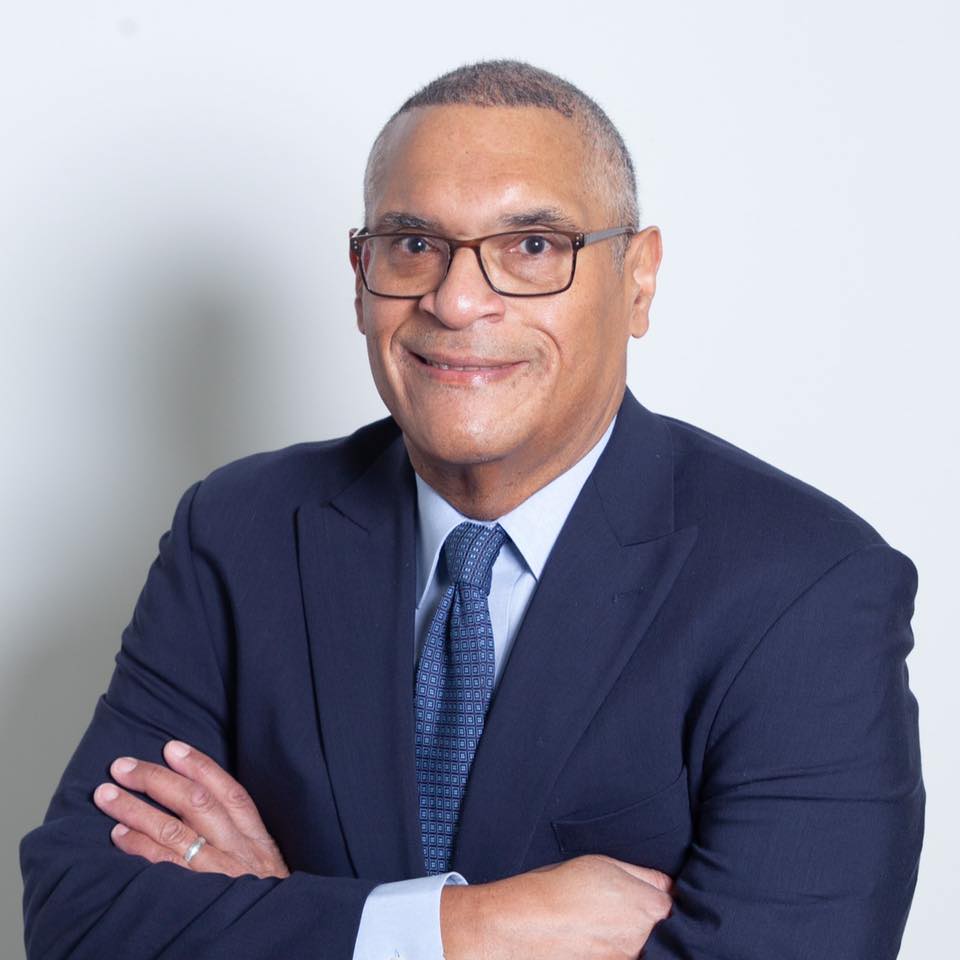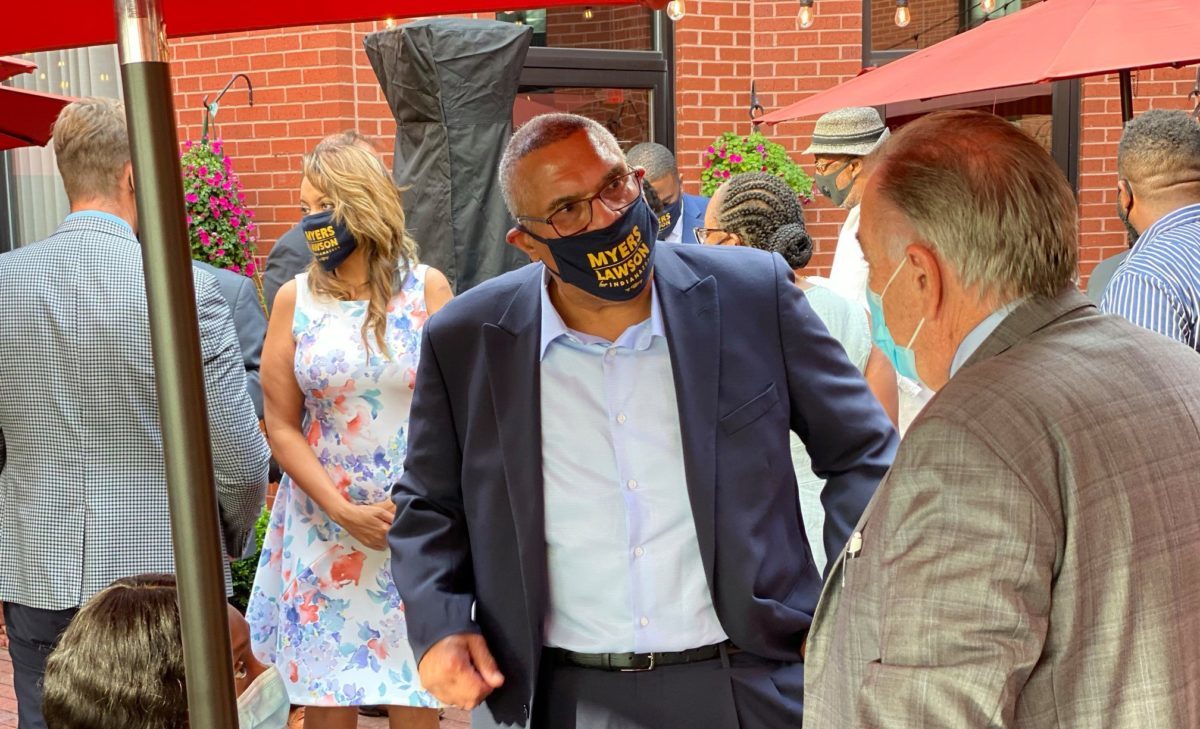Key actions and positions posted on the intersection of disability and education, jobs, immigration, climate crisis, criminal justice and more.

Indianapolis, IN, Sept. 11 – Democratic gubernatorial candidate Dr. Woody Myers has responded to a detailed candidate questionnaire on disability issues. The questionnaire is from RespectAbility, a nonpartisan nonprofit disability organization that does not endorse candidates. The questionnaire is purely for educational purposes. RespectAbility has reached out to key Senate and gubernatorial campaigns on both sides of the aisle and will be posting all responses on The RespectAbility Report. The full text of RespectAbility’s questions and Dr. Myers’ responses follow:
1. Learning during the COVID-19 pandemic has led to more issues and concerns for all students and their families, but this is especially true for students with disabilities. Additionally, the gap in graduation and drop-out rates between students with and without disabilities continues to undermine their futures. For example, in the class of 2018, only 66 percent of Black students with disabilities, 71 percent of Hispanic students with disabilities, 77 percent of white students with disabilities, and 79 percent of Asian-American students with disabilities completed high school. Furthermore, just seven percent of students born with a disability graduate from college. What is your plan for ensuring that all students with disabilities receive a quality and appropriate education to acquire the critical and marketable skills necessary to compete in a job-driven economy?
All students in Indiana deserve a high quality education that prepares them for success post-graduation, especially students with disabilities. The COVID-19 pandemic exposed the inequities in our public school system due to 16 years of Republican-led efforts to privatize public schools. To better prepare students with disabilities for the workplace, we need to increase school funding to provide the resources for additional support staff in the classroom for individualized attention, make sure our schools are a welcoming environment where students with disabilities are integrated into mainstream classes, and specific job training where appropriate. We can do more to close the achievement gaps for marginalized students, including our students with disabilities, by investing in the resources and personnel needed to ensure success.
2. In the economic expansion prior to the COVID-19 pandemic, the national employment rate for working-age people with disabilities in America was 37.6 percent compared to 77.8 percent of people without disabilities. Further, there continues to be significant disparities in employment outcomes within the disability community, which varies from state to state. There are significant racial disparities in disability employment outcomes. 38.9 percent of working-age white people with disabilities have jobs compared to only 29.7 percent of working-age Black people with disabilities had jobs, 39.4 percent of working-age Hispanics with disabilities and 43.2 percent of working-age Asian-Americans with disabilities. The pandemic has ravaged the disability community and more than 1 million workers with disabilities have lost their jobs. If elected, what will you do to ensure that the government is removing barriers and promoting high quality, inclusive services built on evidence-based policies, practices and procedures leading to competitive, meaningful careers, which includes promoting entrepreneurial opportunities?
It’s no secret that Indiana needs to expand opportunities for work to many more people with disabilities – with work that is meaningful and supports their desire to live more independently. While we have seen many employers move aggressively in this area – (Old National Bank and Toyota are just two examples with noteworthy results) more must be accomplished. We need additional employment options – with government (the public sector) leading by example. When elected as Governor, the expansion of employment and careers for the disabled will be a hallmark of my administration. We’ll need to expand efforts to support students with disabilities going to work and building a career after school, and assisting students with disabilities in obtaining advanced post-secondary training. We will modernize and redesign our service system by assessing and remedying current flaws. We will work with the public and private sectors to expand opportunities for meaningful and sustainable work for more people with disabilities – so that they have the resources and support needed to live more independently and fully participate in their communities.
3. The disability community fundamentally believes in the need to ensure “Nothing about us, without us” – real inclusion and places at decision making tables – because we know solutions that work and want to be a part of making our communities stronger. What specific measures have you taken to make your campaign accessible for, and inclusive of, people with disabilities, as every issue impacts our lives?
Our campaign has actively engaged with individuals, advocates, and stakeholders in the disability community to help inform policy development. One example: we included subtitles in our campaign videos to make them more accessible for people to learn more about us.
4. RespectAbility published Disability in Philanthropy & Nonprofits, based on our study on the levels of disability inclusion in the social sector across the country. This largescale study found significant data showing that nationwide, organizations overall want to be inclusive, but are unintentionally excluding the one-in-five people with disabilities. What will you do to promote policies and practices designed to support full community engagement, access and inclusion of people with disabilities?
We are committed to empowering Hoosiers with disabilities to have the skills, support, and access they need to fully participate in their communities as active, valued members. Our administration will prioritize efforts to ensure affordable and accessible housing, reliable transportation, and increased jobs and economic security for those who have been underrepresented for far too long. We will work to improve the state’s medical transport system, support local governments in repairing and building sidewalks to make our communities more accessible, invest in affordable housing development that allows seniors and individuals with disabilities to live in any community they choose and increase job training and placement for those who are willing and able to work, ensuring necessary accommodations are readily available. We will fight to remedy disparities in healthcare and improve wellness in the disability community including by using incentives in Medicaid to address acute care as well as preventative care and create good care management options for all people with disabilities. We’ll ensure state buildings meet accessibility standards and provide alternative communication as requested, in the format preferred, such as ASL interpreters, audio loops, real-time captioning, Braille, and electronic format. Additionally, we’ll implement implicit bias training for state employees so that they better understand the issues facing Hoosiers with disabilities.
5. Elected officials have multiple opportunities to demonstrate a strong commitment to diversity and inclusion, full community participation and celebrating the contributions and accomplishments of people with disabilities through press releases, speeches, celebratory events including National Disability Employment Awareness Month. There are significant stigmas that create attitudinal barriers that limit options and perpetuates low expectations for people with disabilities. What measures will you take to combat these stigmas and promote opportunities for people with disabilities?
To begin, we will review of all the state-led disability programs, committees, councils, and task forces to ensure they are properly represented with people with disabilities and stakeholders. We’ll lead in removing barriers for the disability community. We’ll highlight the incredible contributions people with disabilities are making in state government and we’ll work to recruit more to work in our government, sit on state boards and have a voice in the rooms making decisions about how we build a more inclusive state. We will also ensure that the state sets the standard by paying state employees with disabilities equitable wages.
6. In our nation’s public schools, there are 6.3 million students with disabilities. The changing demographics of America are reflected in these students, with 11.4 percent of students with disabilities nationwide, almost 720,000, also identified as English-language learners. Their accommodation needs are compounded by the fact that many come from households that do not speak English at home, adding an extra challenge for parental interaction. It can also be harder to diagnose disabilities in children when they are English language learners. Additionally, immigration issues and fears over the public charge rule impact students with disabilities, their families and the wider workforce. What policies would you advance to enable students and their families who are English language learners with disabilities to succeed in school and employment?
English language learners with disabilities and their families face additional challenges and barriers to service. We will work to increase access to translation services in schools for both students with disabilities and their families. This includes bi-lingual teachers and instructional staff in classrooms, signs and materials in different languages, and ensuring translators are available for communication between families and the school. A Myers-Lawson Administration will ensure our public schools serving students with disabilities have equitable funding that represents a priority to close achievement gaps.
7. Housing, criminal justice, climate issues, transportation and every other area have significant impacts on people with disabilities. What additional policies and priorities, other than those already discussed above, do you plan to focus on to improve the lives of people with disabilities?
A Myers-Lawson Administration would immediately call for a review of how well the state and its agencies comply with federal regulations. Including a review to ensure the number of ADA coordinators meets or exceeds requirements. We will ensure that state buildings meet accessibility standards and provide alternative communication as requested, in the format preferred, such as ASL interpreters, audio loops, real-time captioning, Braille, and electronic format.
We will expand efforts for students with disabilities to work and build a career after school, including advance post-secondary training. We will increase representation on the State Board of Education and other state boards to be more representative of people with disabilities and advocates. Additionally, we will work to increase wages for Direct Support Professionals so that their pay reflects the importance of the work they do. We will work to address expanding choices for people with disabilities and their families so home and community-based care is a viable option for all Hoosiers in need of this additional support. The Myers-Lawson Administration will ensure that representation and inclusion are foremost part of the decision-making process for policies affecting people with disabilities.
Dr. Myers is facing off against incumbent Republican Gov. Eric Holcomb in this year’s gubernatorial election in Indiana. In response to RespectAbility’s candidate questionnaire, Gov. Holcomb submitted a letter detailing some of his administration’s key efforts around improving outcomes for Hoosiers with disabilities. You can find that response online here.
RespectAbility is a nonprofit, nonpartisan organization that fights stigmas and advances opportunities so people with disabilities can fully participate in all aspects of their communities. RespectAbility does not rate or endorse candidates. View more coverage of 2020 candidates.

[…] Read Response in Full […]